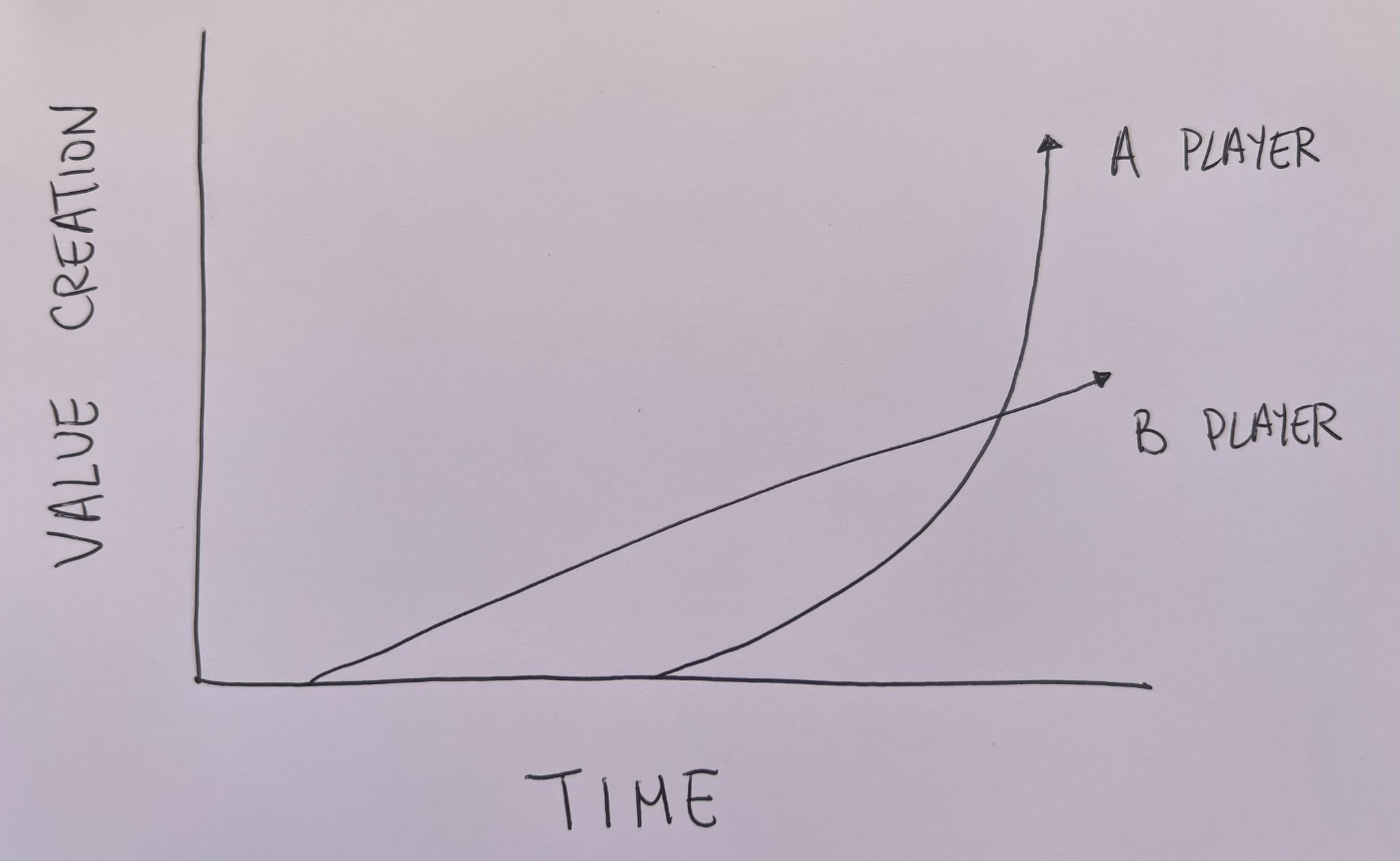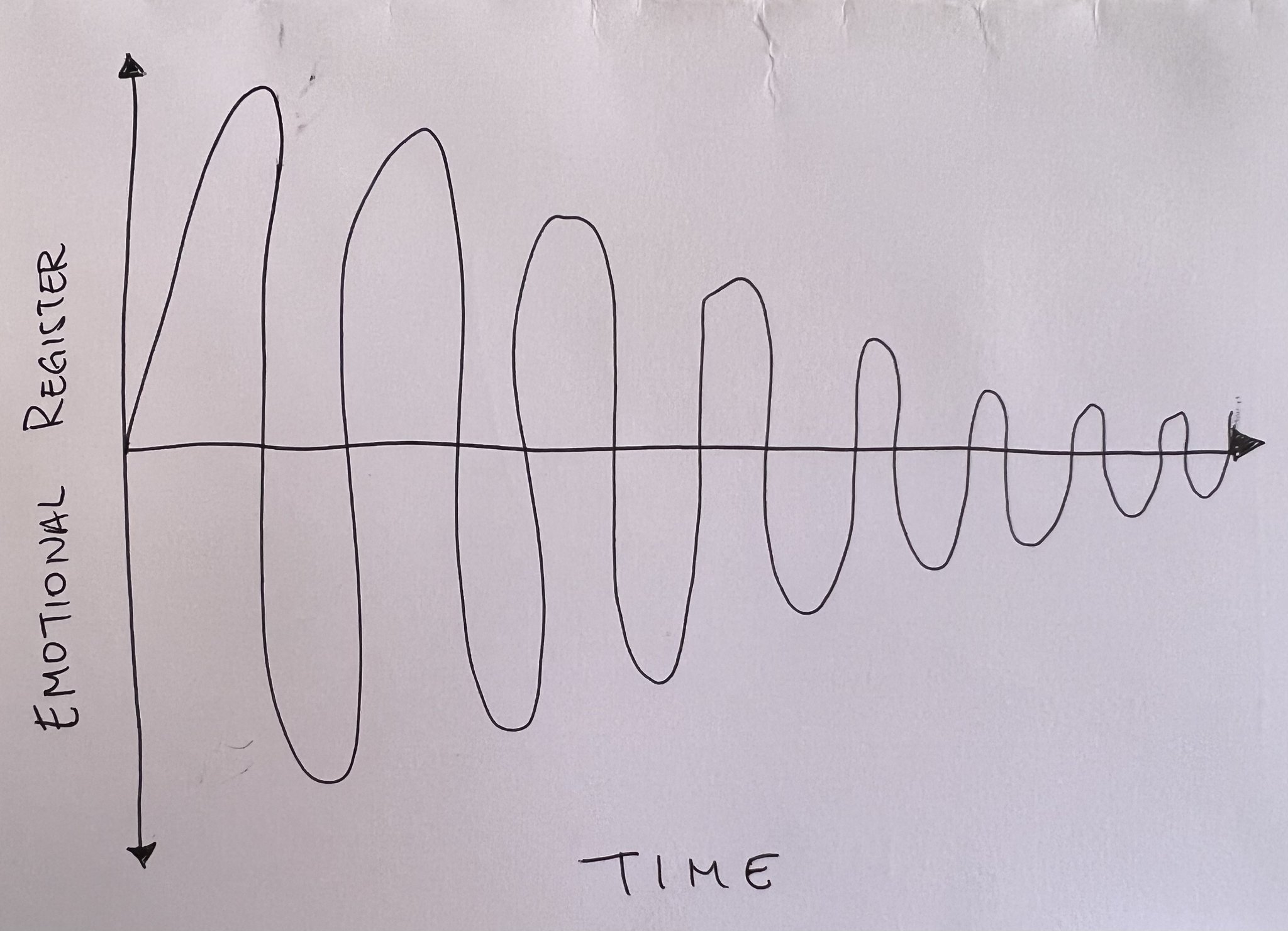Thread
I’ve had a lot of successes–but even more failures–as an entrepreneur.
Here are 7 critical lessons I've learned from the journey:
Here are 7 critical lessons I've learned from the journey:
1. Be Patient When Hiring
Team quality is the single most important determinant of success.
Take your time to build high quality teams.
Don’t hire the B player today.
Hire the A player in 3 months.
Although it’s painful to wait, hiring the A player is always the right move.
Team quality is the single most important determinant of success.
Take your time to build high quality teams.
Don’t hire the B player today.
Hire the A player in 3 months.
Although it’s painful to wait, hiring the A player is always the right move.
2. If You Want the Best, Pay for the Best
Many founders believe they can convince the best talent to take a pay cut by selling the equity dream.
But the best know what they’re worth, and they’ll get it somewhere.
Don’t be stingy.
The ROI on top 5% talent is always there.
Many founders believe they can convince the best talent to take a pay cut by selling the equity dream.
But the best know what they’re worth, and they’ll get it somewhere.
Don’t be stingy.
The ROI on top 5% talent is always there.
3. Take Care of Yourself / Reduce the Amplitude
Building a startup is like a rollercoaster.
One day you’re on the top of the world. The next day you feel like a complete failure.
It’s mentally and emotionally exhausting and can render you ineffective if you don't manage it.
Building a startup is like a rollercoaster.
One day you’re on the top of the world. The next day you feel like a complete failure.
It’s mentally and emotionally exhausting and can render you ineffective if you don't manage it.
If you don’t take care of yourself, you won’t be able to take care of your team or your company.
Build the habits that reduce your highs and lows:
• Exercise daily (no excuses!)
• Meditate
• Journal
• Practice gratitude
The goal is to reduce the amplitude over time.
Build the habits that reduce your highs and lows:
• Exercise daily (no excuses!)
• Meditate
• Journal
• Practice gratitude
The goal is to reduce the amplitude over time.
4. First Hires Set the Tone
Your first hires create the cultural blueprint for the company.
If you want a culture that moves fast and is detail-oriented, your early hires need to embody those traits.
Subsequent hires will naturally map their actions to the existing blueprint.
Your first hires create the cultural blueprint for the company.
If you want a culture that moves fast and is detail-oriented, your early hires need to embody those traits.
Subsequent hires will naturally map their actions to the existing blueprint.
5. “Move Fast and Break Things” Isn’t Always The Best Approach
I used to be obsessive with orienting the team around moving as fast as possible.
But we’re not a consumer app.
We’re operating in a highly regulated industry.
If we mess up, it affects people's financial lives.
I used to be obsessive with orienting the team around moving as fast as possible.
But we’re not a consumer app.
We’re operating in a highly regulated industry.
If we mess up, it affects people's financial lives.
The better approach is to move swiftly but judiciously.
As the saying goes, slow is smooth and smooth is fast.
Move fast whenever you can.
But understand when you need to slow down to get it right the first time.
As the saying goes, slow is smooth and smooth is fast.
Move fast whenever you can.
But understand when you need to slow down to get it right the first time.
6. Don’t Mistake Motion for Progress
When everyone is sprinting, it may feel like you’re making a lot of progress.
But beware: motion is not progress.
Ruthlessly eliminate work that isn’t moving the needle on what truly matters.
A rocking chair moves, but never gets anywhere.
When everyone is sprinting, it may feel like you’re making a lot of progress.
But beware: motion is not progress.
Ruthlessly eliminate work that isn’t moving the needle on what truly matters.
A rocking chair moves, but never gets anywhere.
7. Make Gratitude & Celebration a Ritual
Teams that celebrate together, stay together.
Appreciated teammates are more motivated and work harder.
Build in the rituals for appreciation and celebration early on into your company’s cultural cadence.
You won’t regret it.
Teams that celebrate together, stay together.
Appreciated teammates are more motivated and work harder.
Build in the rituals for appreciation and celebration early on into your company’s cultural cadence.
You won’t regret it.
So to summarize:
1. Be Patient When Hiring
2. If You Want the Best, Pay the Best
3. Take Care of Yourself
4. First Hires Set the Tone
5. “Move Fast & Break Things” Isn’t Always the Best Approach
6. Don’t Mistake Motion for Progress
7. Make Gratitude & Celebration a Ritual
1. Be Patient When Hiring
2. If You Want the Best, Pay the Best
3. Take Care of Yourself
4. First Hires Set the Tone
5. “Move Fast & Break Things” Isn’t Always the Best Approach
6. Don’t Mistake Motion for Progress
7. Make Gratitude & Celebration a Ritual
That’s all for today.
I’m going to be sharing more earned insights from the journey in the weeks and months ahead.
Follow me @kurtisjlin to catch this writing in your feed.
I’m going to be sharing more earned insights from the journey in the weeks and months ahead.
Follow me @kurtisjlin to catch this writing in your feed.

